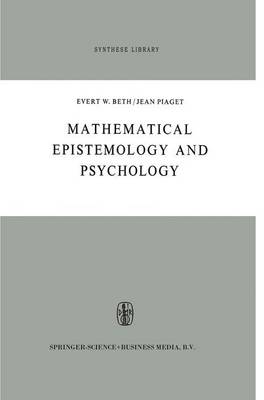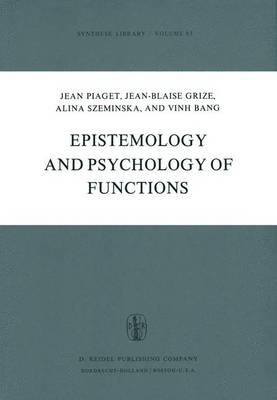Synthese Library
2 primary works
Book 12
One of the controversial philosophical issues of recent years has been the question of the nature of logical and mathematical entities. Platonist or linguistic modes of explanation have become fashionable, whilst abstrac tionist and constructionist theories have ceased to be so. Beth and Piaget approach this problem in their book from two somewhat different points of view. Beth's approach is largely historico-critical, although he discusses the nature of heuristic thinking in mathematics, whilst that of Piaget is psycho-genetic. The major purpose of this introduction is to summarise some of the main points of their respective arguments. In the first part of this book Beth makes a detailed study of the history of philosophical thinking about mathematics, and draws our attention to the important role played by the Aristotelian methodology of the demon strative sciences. This, he tells us, is characterised by three postulates: (a) deductivity, (b) self-evidence, and (c) reality. The last postulate asserts that the primitive notions of a demonstrative science must have reference to a domain of real entities in order to have significance. On the Aristote lian view discursive reasoning plays a major role in mathematics, whilst pure intuition plays a somewhat subordinate one.
Book 83
Epistemology and Psychology of Functions
by J. Piaget, J. B. Grize, A. Szeminska, and V. Bang
Published 11 November 1977
Years ago, prompted by Grize, Apostel and Papert, we undertook the study of functions, but until now we did not properly understand the relations between functions and operations, and their increasing interactions at the level of 'constituted functions'. By contrast, certain recent studies on 'constitutive functions', or preoperatory functional schemes, have convinced us of the existence of a sort of logic of functions (springing from the schemes of actions) which is prior to the logic of operations (drawn from the general and reversible coordinations between actions). This preoperatory 'logic' accounts for the very general, and until now unexplained, primacy of order relations between 4 and 7 years of age, which is natural since functions are ordered dependences and result from oriented 'applications'. And while this 'logic' ends up in a positive manner in formalizable structures, it has gaps or limitations. Psychologically, we are interested in understanding the system atic errors due to this primacy of order, such .as the undifferentiation of 'longer' and 'farther', or the non-conservations caused by ordinal estimations (of levels, etc. ), as opposed to extensive or metric evaluations. In a sense which is psychologically very real, this preoperatory logic of constitutive functions represents only the first half of operatory logic, if this can be said, and it is reversibility which allows the construction of the other half by completing the initial one-way structures."

